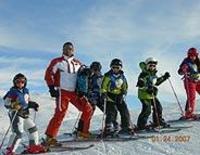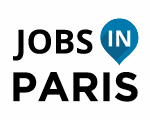Instructors

France is a sporting paradise. There’s windsurfing on the west coast, rafting in the south-east, rugby in the south-west, sailing in Brittany, skiing and other winter sports in the Jura, Vosges and Massif Central, as well as in the Alps and the Pyrenees, and cycling, golf, hiking, horse riding, mountain biking, paragliding, squash and tennis in most parts of the country. If you’re skilled in a sport of almost any kind and are looking to take advantage of France’s climate and lifestyle, it’s worth researching this increasingly popular sector.
General information about sports in France can be obtained from the Direction du Temps Libre et de l’Education Populaire. The all-sports daily newspaper L’Équipe may also be a useful source of information and contacts. Each sport has a national federation or association, all of which are listed on the website of the Ministère de la Jeunesse, des Sports et de la Vie Associative (www.sports.gouv.fr ).
To be a sports instructor ( éducateur sportif) in France, you require a Brevet d’Etat d’Educateur Sportif ( BEES) or an equivalent foreign qualification. No previous experience or other qualifications are required. There’s a core curriculum for all sports, dance and gym instructors, followed by specialised study for particular types of activity. The core curriculum, known as la partie commune, involves studies in biology and other sciences, sports regulation, sports psychology and communication skills, plus first aid training. Specialised study ( la partie spécifique) covers the specific techniques, training and teaching methods, and regulations relating to a particular activity.
There are also opportunites for instructors of indoor activities, such as gym and dance, which require similar qualifications and experience to those for sports instructors (see above). To become a dance teacher, you need a Diplôme d’Etat ( DE) or equivalent foreign qualification. A DE requires 1,000 hours’ training, including study of music history and performance and teaching theory and practice, which normally takes two years. You must already have a Baccalauréat or Diplôme d’Etudes Musicales ( DEM) or equivalent foreign qualification, or a recognised dance award, and pass the examen d’aptitude technique ( EAT) in jazz, classical or contemporary dance.
Fishing
Fishing (especially carp fishing) is a popular leisure activity in France and, if you have relevant knowledge and experience and are seeking an outdoor lifestyle, you might consider buying a property with a lake or river frontage and selling fishing permits. Indeed, this is an increasingly popular option among foreigners seeking to settle in France and make a living there. There are estimated to be up to 30 British-owned fishing lakes within a few hours’ drive of Calais, for example.
Although not particularly well known internationally, France is a paradise for fishermen, with 240,000km (150,000mi) of rivers and streams, and 120,000 hectares (300,000 acres) of lakes and ponds, in addition to its 4,800km (3,000mi) of coastline. There’s excellent fishing in rivers, lakes and ponds throughout France. Fishing ( pêche) is enjoyed regularly by around 4 million French anglers and irregularly by some 20 per cent of the population, as well as by foreign tourists and fishing fanatics.
For a lake to be viable, it should cover at least 6ha (15 acres), as you need 1ha of water per fisherman and groups of six are popular. It must also be at least 1.5m (5ft) and preferably no more than 3.5m (12ft) deep. It’s essential that a lake is full all year round and not only in wet periods. A mature, secluded lake, preferably with an island or islands, is the most desirable. A lake that’s miles from anywhere may seem the ideal spot for a tranquil fishing holiday, but remember that your customers won’t be fishing 24 hours a day (not all of them, anyway) and will want to be within easy reach of shops, restaurants and other facilities.
Further information about fishing in France can be obtained from the Conseil Supérieur de la Pêche, 16 avenue Louison Bobet (www.csp.ecologie.gouv.fr ), and the Union Nationale pour la Pêche en France(www.unpf.fr ).
Travel Agency
Setting up a travel agency ( agence de voyages) in France is anything but straightforward. To become a registered travel agent (and you cannot operate without registering), you must have the appropriate qualification, which is a Brevet de Tourisme or foreign equivalent, plus at least three years’ experience as a cadre in an agency. Note, however, that it can take years even to become a cadre. The only possible short-cut to setting up an agency is to buy an existing business and ‘employ’ the previous owner for three years, which may be possible if he’s on the point of retirement. You must also pay a deposit ( caution bancaire) of at least €99,000 in order to register the business.
The travel agency business is unstable and subject to the vagaries of the world economy and tourism trade, which can be unsettled overnight by a terrorist attack or the outbreak of a contagious disease, for example. To be successful, you must be flexible and innovative and offer other, related services, such as organising local tours (especially if you’re in a popular tourist area) and handling business trips for local companies, as well as be constantly on the look-out for new markets and tourist destinations.
The French national travel agency association, the Syndicat National des Agents de Voyages (www.snav.org ), offers support and advice to members and may be able to provide information to would-be travel agents. Membership isn’t obligatory.
As Europe’s premier holiday destination, France offers opportunities for people who want to organise tours, whether they be wine or cultural tours; canal cruises; sailing, cycling or walking holidays; painting or creative writing holidays; or any of a hundred other specialised activities. This might sound like a relaxing and enjoyable way to make a living, but, as with any business, success depends on thorough market research, expertise and hard work.
Campsites
Camping and caravanning are extremely popular, with both the French and the many thousands of tourists who flock to France each year to spend their holidays in the open air. The French have elevated le camping to a high level of sophistication and chic and are the most camping-conscious nation in Europe, with over 11,500 campsites, including over 2,000 rural and farm sites. France is also Europe’s largest market in camper vans ( camping-car), with around 18,000 vehicles sold annually.
If you have appropriate experience and want an outdoor lifestyle, you may be tempted to set up or buy a campsite ( camping). If so, you must be physically strong, as maintaining a site is hard work (and you may be faced with unruly holidaymakers), and have plenty of money to invest – or risk taking out a large loan – as campsites, particularly those with permanent ‘mobile’ homes, are expensive. Fluent French is, of course, almost essential, but a knowledge of other languages – particularly Dutch – is an advantage. You must decide whether to offer tents, caravans, mobile homes or bungalows for hire, some of which may be suitable for winter accommodation, which will provide welcome additional income.
You must obtain planning permission, which is arranged via the local mairie and granted (or not) by the departmental Direction de l’Equipement (DDE). You cannot set up a campsite anywhere: only designated land may be used, and it must obviously be reasonably flat and grassed and there must be good access for vehicles.Each pitch ( emplacement) must be at least 150m2, and there must be trees not only surrounding the site, but also within it to provide shade. As well as washing facilities ( bloc sanitaire), you must provide drinking water taps, rubbish disposal facilities and a shelter for campers if their tents are blown or washed away by a storm. They must also have access to your home, which must, therefore, be nearby.
If you want to attract camper van owners, you also need electricity ‘hook-up’ ( branchement) points and, therefore, an electricity supply with a high power rating, which is expensive to install and maintain
The rates you can charge are determined largely by your star rating and the facilities you offer. You can usually charge more in high season and could charge extra for the use of showers, sports facilities and other amenities, such as ironing facilities or use of a freezer, although this doesn’t usually go down well with campers! It’s preferable to run an on-site shop, bar or restaurant or rent canoes or bicycles. Information about campsites is available from the Fédération Française de Camping et de Caravaning (FFCC) their website is: www.ffcc.fr
This article is an extract from Making a living in France.
Click here to get a copy now.


